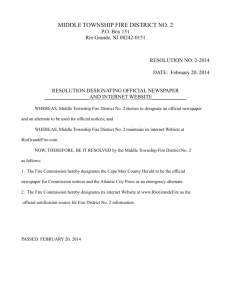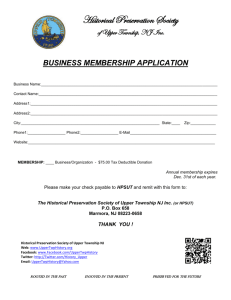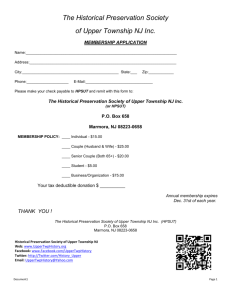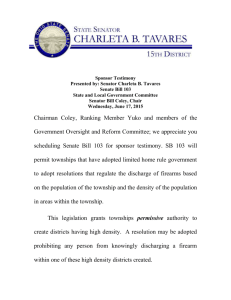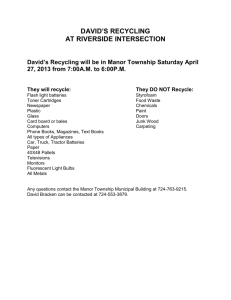Community Based Health Development Programme focusing on
advertisement
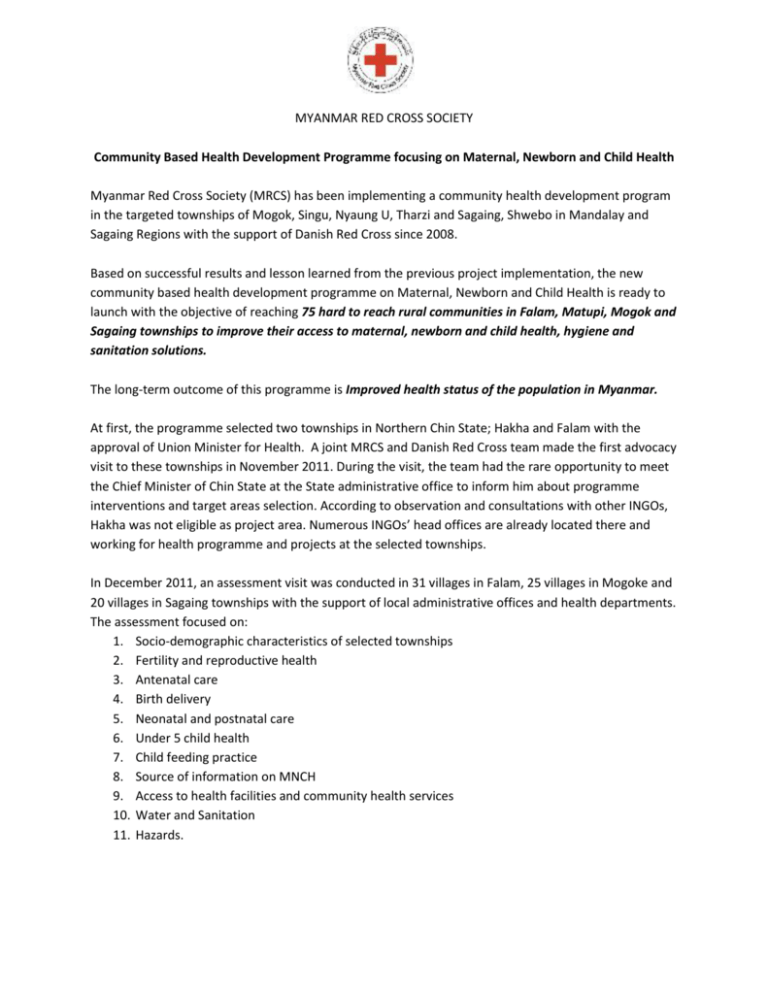
MYANMAR RED CROSS SOCIETY Community Based Health Development Programme focusing on Maternal, Newborn and Child Health Myanmar Red Cross Society (MRCS) has been implementing a community health development program in the targeted townships of Mogok, Singu, Nyaung U, Tharzi and Sagaing, Shwebo in Mandalay and Sagaing Regions with the support of Danish Red Cross since 2008. Based on successful results and lesson learned from the previous project implementation, the new community based health development programme on Maternal, Newborn and Child Health is ready to launch with the objective of reaching 75 hard to reach rural communities in Falam, Matupi, Mogok and Sagaing townships to improve their access to maternal, newborn and child health, hygiene and sanitation solutions. The long-term outcome of this programme is Improved health status of the population in Myanmar. At first, the programme selected two townships in Northern Chin State; Hakha and Falam with the approval of Union Minister for Health. A joint MRCS and Danish Red Cross team made the first advocacy visit to these townships in November 2011. During the visit, the team had the rare opportunity to meet the Chief Minister of Chin State at the State administrative office to inform him about programme interventions and target areas selection. According to observation and consultations with other INGOs, Hakha was not eligible as project area. Numerous INGOs’ head offices are already located there and working for health programme and projects at the selected townships. In December 2011, an assessment visit was conducted in 31 villages in Falam, 25 villages in Mogoke and 20 villages in Sagaing townships with the support of local administrative offices and health departments. The assessment focused on: 1. Socio-demographic characteristics of selected townships 2. Fertility and reproductive health 3. Antenatal care 4. Birth delivery 5. Neonatal and postnatal care 6. Under 5 child health 7. Child feeding practice 8. Source of information on MNCH 9. Access to health facilities and community health services 10. Water and Sanitation 11. Hazards. An assessment report1 indicated the selected communities were highly relevant for MNCH interventions in those areas. Similarly, U Sai Pe Thein, Branch Develop Coordinator from Organizational Development Division, made branch capacity assessments in Falam, Mogoke and Sagaing. During the assessment, Chin State administrative office recommended moving the programme to Matupi township in Southern Chin State instead of Hakha township. The Ministry of Health gave its approval for MRCS to change the project area to Matupi township. Advocacy to Sagaing and Mandalay regional government’s social affair ministers was done respectively in December 2011. With the aim of having programme framework contributed by key stakeholders, a three-day MNCH programme development workshop was conducted in January 2012 at the Panda Hotel in Yangon. Chin state and Sagaing regional health directors and a regional health officer from Mandalay participated in the workshop with township medical officers, representatives from township administrative offices, G1 from Chin state, Mandalay and Sagaing Regions, representatives from township red cross, and community representatives. About 40 participants attended the workshop. The workshop was chaired by Dr Hla Pe, Honorary Secretary of MRCS and facilitated by Dr Mark Shepherd, consultant, and Ms Jytte Roswall, International Health advisor from Danish Red Cross. Mr Gregory Rose, Health Advisor EURASIA, from British Red Cross also presented as an observer. After the workshop, the team produced a draft programme framework. A community based approach for delivering key interventions, building on existing structures and national strategies focus on behavior change, and connection to and coordination with the existing public health system forms the basis the programme’s sustainability strategy. Key programme components/interventions are based on a concept of “continuum of care” and include: a) improving practices of and access to reproductive health, antenatal care, delivery, postnatal and newborn care; b) enhancing community resilience to most common communicable disease; c) enhancing access of communities to improved water solutions and hygiene and sanitation practices and; d) strengthening capacity of Myanmar Red Cross Society in community-based health development. At the end of February 2012, MRCS and DRC made a second advocacy visit to Matupi townships. Several consultation meetings with several stakeholders were held, though an assessment was not done in Matupi township. Based on such as village selection criteria2 such as accessibility to local community health center, health staff availability in the village, MNCH need in the village; the programme selected 75 project target communities according to village selection result3; 18 communities in Falam township, 1 Main findings, Initial assessment for formulation of Community Based Health Development Programme focused on maternal, newborn and child health in Chin State and Sagaing and Mandalay Regions 2 Villages selection criteria list 3 Village selection analysis result 20 communities in Mogok township, 17 communities in Sagaing and 20 communities in Matupi township for relevant community based health interventions. Township Total township population Assessment conducted Selected communities/population communities/total population Falam Sagaing Mogoke Matupi* 65,660 (2011) 304,195 (2010) 216,158 (2010) 51,975 (2011) 31 (9,617) 20 (12,793) 25 (8,962) - 18 (4,789) 17 (12,245) 20 (4,944) 20 (6,445) Coverage of the programme on the whole township population 7% 4% 2% 12% * No assessment was done yet. It is plan to conduct detail assessment in Matupi before baseline study in November 2012. Danish Red Cross and British Red Cross will contribute the programme in terms of financial and technical support. The estimated time for inception phase of programme is to be launched at 2012 July after programme document is endorsed by Ministry of Health. ---------------------------------------------------------------------/----------------------------------------------------------------
